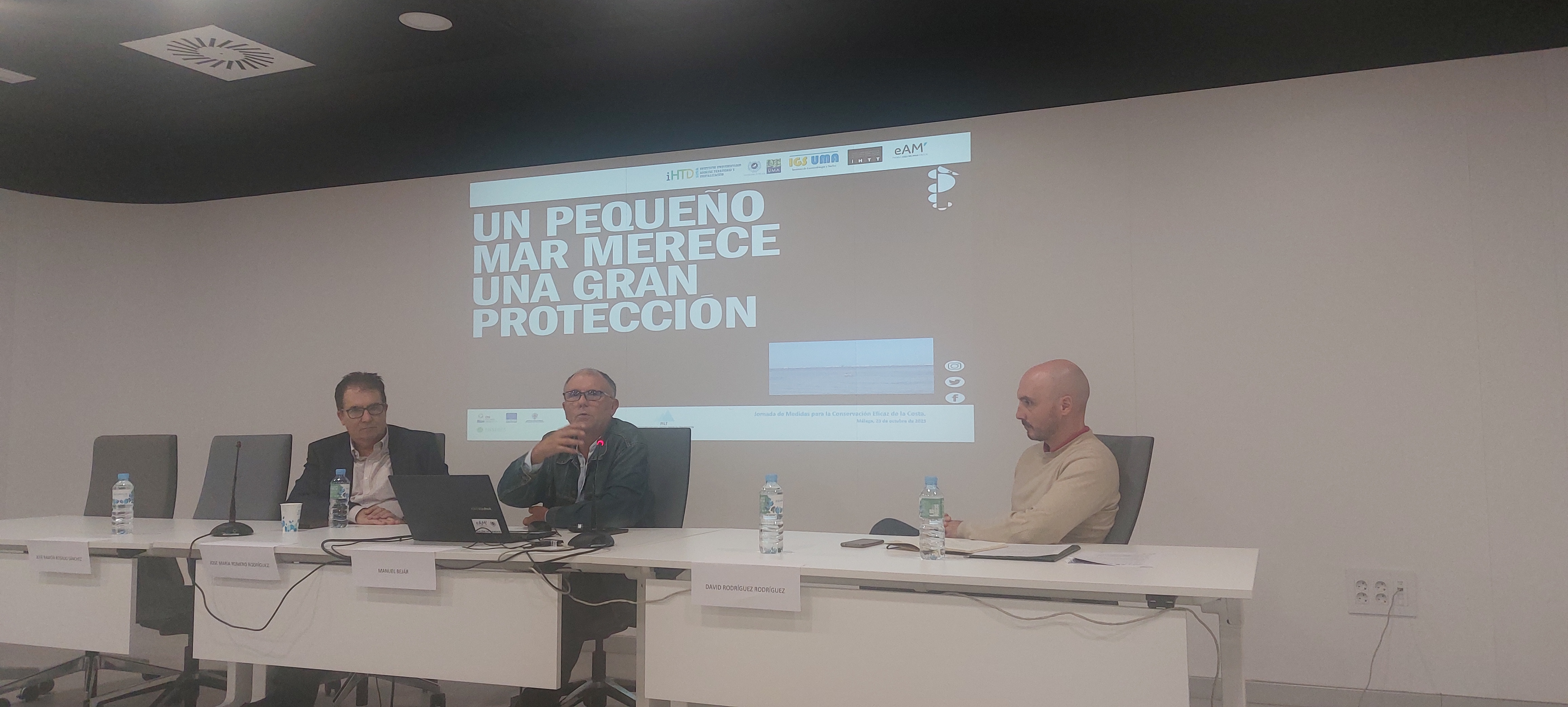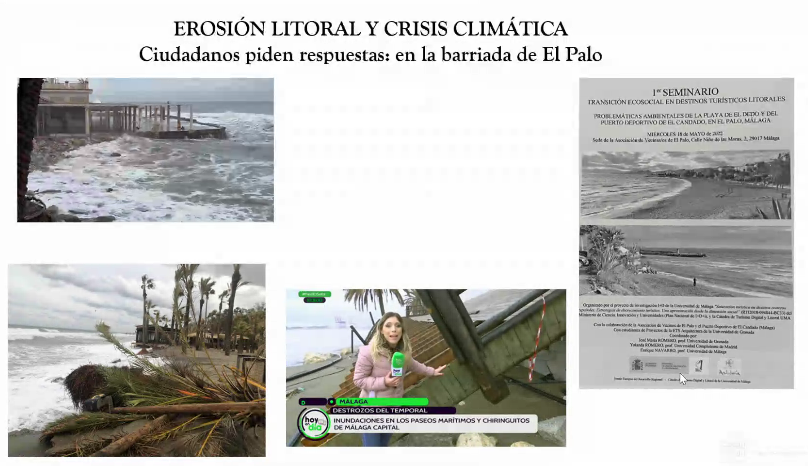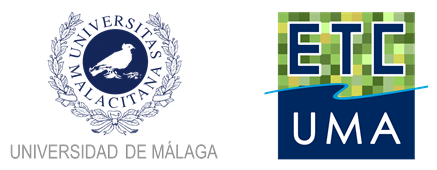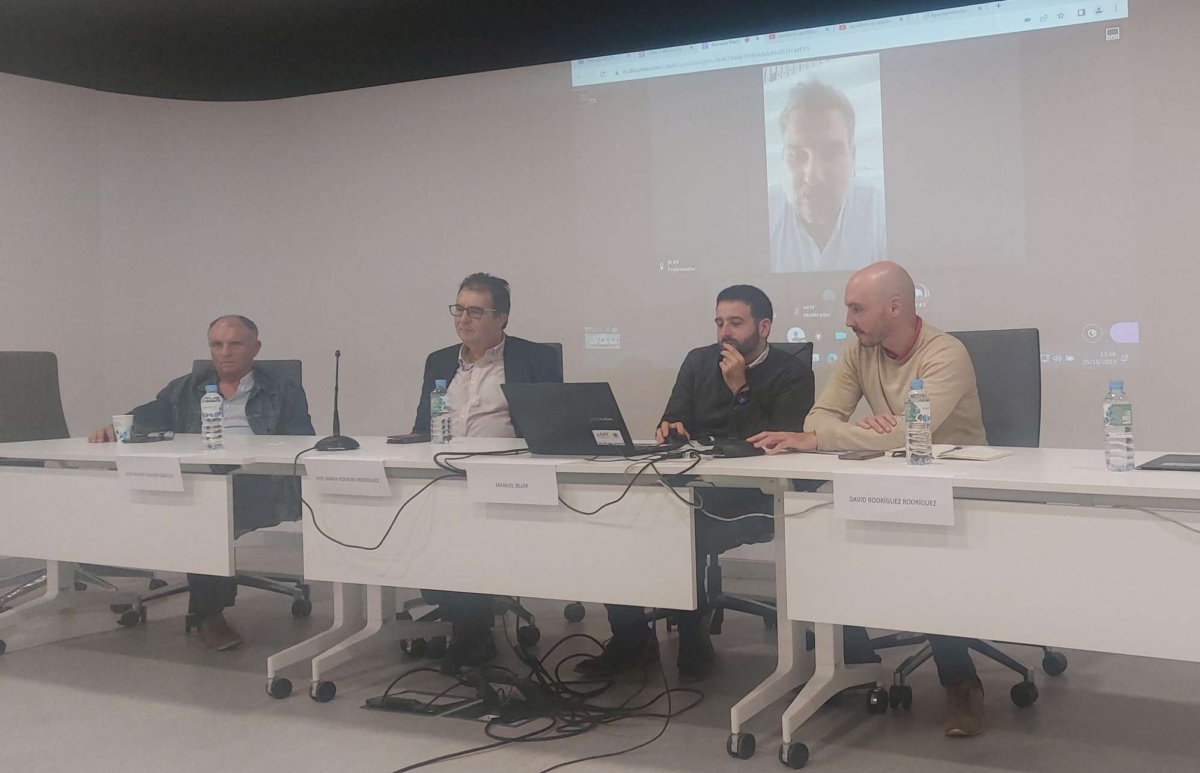On the initiative of the Instituto Universitario Hábitat Territorio y Digitalización (iHTD) of the University of Malaga, around 70 representatives of Spanish public administrations, researchers, architecture and environmental science players and civil society signed up to the second debate on “Effective conservation measures on the Spanish coast“ on 25 October 2023 at the Escuela Técnica Superior de Arquitectura in Malaga.
With the objective to learn about different recent experiences for the effective conservation of coastal biodiversity and its adaptation to climate change including ecological restoration, the exchanges today aimed at promoting synergies and networking between administrations, researchers and academia organizations related to the conservation of coastal biodiversity processes planned or underway by the different administrations with powers in the matter.
Framed in a broader initiative to enhance the socio-ecological resilience of Mediterranean coastal communities called ENSERES funded by the EU ENI CBC MED programme, the morning sessions led by ETC-UMA shed light on the legislative frameworks at national, subnational, and local levels in Spain, in a similar approach followed during its final event held last week in Tunis highlighting efforts in Lebanon and Tunisia.
Numerous Spanish case studies and models to develop, agree and set effective conservation measures on the coast have been discussed, ranging from the designation of an Ecological Reserve for coastal dunes in Marbella (Malaga) to legislative initiatives like the acknowledgement of juridical rights for ecosystems in the case of the Mar Menor (Murcia) and the society’s endorsement of sustainable tourism and conservation practices as part of their own identity in Conil (Cádiz).

Main conclusions and recommendations by speakers and participants pointed to the need of further coordination across public administration and a better integration with other sectors beyond tourism and including local economic actors. The approach of creating debate between architecture, urban/marine planning authorities, research, business and conservation players was praised, with future similar fora envisaged by the iHDT.
Across the discussions held, the role of education and citizen’s awareness and engagement in achieving a conservation that is effective and that fosters at the same time the economic development of coastal communities was highlighted as key in successful cases. The concepts of ecocentrism, legislative measures for ecosystems in need of protection, nature-based solutions and green infrastructures have been exposed with a final general call for a societal attitude change needed at all levels, based on the understanding that an effective conservation of coastal habitats can only benefit us all.
As Dania Abdul Malak, ETC-UMA director stated “We know now that many tools and mechanisms exist for coastal conservation. Public financial mechanisms however need to be used with a long-term vision and perspective to prioritise a sustainable management, which is the only way to help us conserve, re-naturalize and restore these highly pressurised ecosystems and with it, us people that live in them”.
A new publication by the initiative entitled Mediterranean Landscape in Transition was presented during the afternoon session by some of the authors, to which the ETC-UMA staff have contributed, covering new approaches for the new social and environmental challenges related to global changes in different Mediterranean landscapes.
A brief report with main conclusions reached during the debate held on 25 October is now available.
More information: ENSERES project

Related materials:
https://www.sciencedirect.com/science/article/pii/S0964569123001266
https://www.etc.uma.es/defining-a-strategy-against-coastal-degradation-in-andalusia/
More info:



